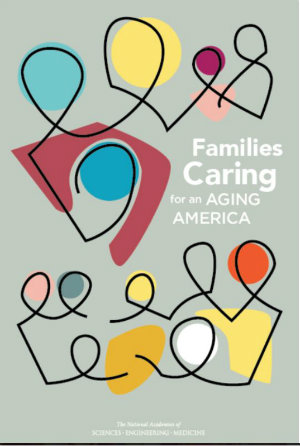Presidential elections often bring some of the most extraordinary moments in our shared experience, and this one has been no exception. With the selection yesterday of the new President-elect, we all became part of a piece of American history we will never forget. We congratulate Donald Trump. But now that the campaign is over, where do we go from here and what will his election mean for the future of health care, philanthropy, and the care of older adults?
In this often personality-driven race, many important issues were noticeably absent, including those related to our rapidly aging nation that we at The John A. Hartford Foundation care passionately about.
It’s time for that to change.
For the past five years, someone in America has been turning 65 every eight seconds. This wonderful longevity success story will continue for many years to come. We already have the oldest population in our history, 46 million older people in all; and by 2040, about 20 percent of Americans will be age 65 or older.
For the good of the country, we’d like to see more attention to older adult concerns featured prominently on President-elect Trump’s agenda: life-and-death issues like improving care for older adults, supporting severely overburdened family caregivers, finally guaranteeing people with serious illness the kind of care that respects their goals and wishes, and building an age-friendly health system that works seamlessly across the continuum of care. These issues are intensely personal, but they also play a decisive societal role in the future health of our nation, our workforce, and our economy.
There are still many unanswered questions about where the health care debate is headed. Advocates for older adults must now rise to this occasion and make themselves heard to ensure that recent progress in moving away from volume-based care and toward value-based, person-centered, geriatrically expert care is not derailed or reversed.
This direction has been important and beneficial to everyone, but particularly older adults. President-elect Trump’s often stated desire to “repeal and replace” the Affordable Care Act could slow that progress by endangering certain programs that have strengthened Medicare and promoted positive change, such as the CMS Innovation Center, which, in acting CMS administrator Andy Slavitt’s words, works to “test and invest” in the best ideas seeking Triple Aim results on behalf of all patients. The Innovation Center has been critical to driving the health care sector to take up and improve important new models of care, some of which (like Hospital at Home and the GEDI-WISE geriatric ED initiative) have been supported by The John A. Hartford Foundation.
President-elect Trump has said very little specifically about Medicare, which did not even get a mention on his health care campaign position page, although he has called for the program to be able to negotiate on prescription drug prices, and to allow Americans to buy pharmaceuticals from other countries where they are often less expensive.
His call for turning the Medicaid program into block grants to individual states could lead to reduced spending and, according to the Eldercare Workforce Alliance, has “the potential to be catastrophic” for the nearly 6 million older adults dually eligible for Medicare and Medicaid, many of whom rely on Medicaid for long-term care.
 On family caregiving, one of The John A. Hartford Foundation’s key priority issues, we plan to continue to press for the development and implementation of a National Family Caregiver Strategy based on the recent nonpartisan report, “Families Caring for an Aging America,” from the National Academies of Science, Engineering, and Medicine. To that end, while it provides very little detail, the Trump platform does call for creation of new Dependent Care Savings Accounts (DCSAs) that families can use for child care or elder care, including in-home nursing and long-term care for their parents or adult dependents, about which we’d like to hear more.
On family caregiving, one of The John A. Hartford Foundation’s key priority issues, we plan to continue to press for the development and implementation of a National Family Caregiver Strategy based on the recent nonpartisan report, “Families Caring for an Aging America,” from the National Academies of Science, Engineering, and Medicine. To that end, while it provides very little detail, the Trump platform does call for creation of new Dependent Care Savings Accounts (DCSAs) that families can use for child care or elder care, including in-home nursing and long-term care for their parents or adult dependents, about which we’d like to hear more.
We also urge the Trump administration to heed the expert advice provided by the Vital Directions for Health and Health Care Initiative from the National Academy of Medicine, which, in a set of 19 peer-reviewed papers, presents an actionable set of evidence-based recommendations in health and health care. I was honored to be among the authors of one of those papers, “Preparing for Better Health and Health Care for an Aging Population,” which makes four specific recommendations:
- We must develop and spread effective models of care delivery for older adults;
- We need to augment the eldercare workforce, both in terms of numbers and competence;
- We should promote social supports and engagement for older people; and
- We need more high-quality care and dignity for those near or at the end of life.
These suggestions are within reach and affordable, often drawing on strategies that have a strong evidence base but have not been widely disseminated for other reasons.
It’s time to put the partisanship of the campaign behind us and find ways to work together on the issues that matter most. We at The John A. Hartford Foundation stand ready to help and will be passionately focused, as always, on improving the care of older adults.

